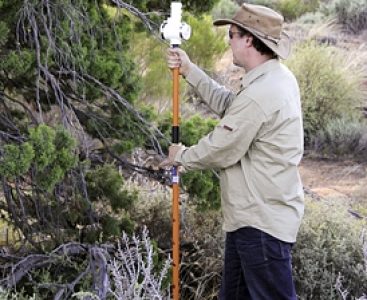News
Ecosystem data publishing through TERN
June 1, 2013
Uncategorized
Guided by the philosophy ‘Collect data once – make it discoverable – re-use it many times’, TERN’s infrastructure offers a one-stop-shop solution for data publishing ...
Find out more
Soils to Satellites now live!
June 1, 2013
Uncategorized
With the launch of the Soils to Satellites (S2S) online tool this week, TERN’s Eco-informatics facility gives people a way to explore and visualise relationships between ...
Find out more
Data publishing: removing the barriers
June 1, 2013
Uncategorized
Data publishing has gained momentum globally, due to an increasing awareness of the benefits in publishing and re-using data, alongside the growing insistence of funding ...
Find out more
Keep watch on coasts from your office chair
June 1, 2013
Uncategorized
Researchers and others can now access coastal shoreline video data and metadata through TERN’s Australian Coastal Ecosystems Facility (ACEF) and the TERN Data Discovery Portal, ...
Find out more
Collaborative science at work in the Top End
May 1, 2013
Uncategorized
Extreme fire weather has increased in many parts of Australia over the last three decades, and projections for the future indicate that the likelihood of ...
Find out more
Improving access to national climate data
May 1, 2013
Uncategorized
The Bureau of Meteorology (BOM) fulfils a critical role for Australia as the country’s national weather, climate and water agency. It is tasked with using ...
Find out more
Extreme rain not a dampener for new flux tower
May 1, 2013
Uncategorized
TERN not only provides the national ecosystem data infrastructure to enable better understanding of extreme events in Australia – it sometimes has to work in ...
Find out more
Extreme droughts, temperatures and death in forests
May 1, 2013
Uncategorized
An ACEAS working group is moving beyond the meteorological definition of droughts to an ecological one, so we can better understand the impact of climate ...
Find out more
Local knowledge builds better maps
April 1, 2013
Uncategorized
A new project by TERN’s AusCover facility will enable anyone to contribute their local knowledge to the development of more accurate maps for Australia. Developed ...
Find out more
Students gain skills, TREND gains data in symbiotic exchange
April 1, 2013
Uncategorized
Measuring vegetation at Calperum … By using the point intercept method to sample vegetation at 1,000 points and 4,000 points across a hectare, TREND has determined that the ...
Find out more
Subscribe to TERN News
Project updates, data releases, research findings, and users stories direct to your inbox.







